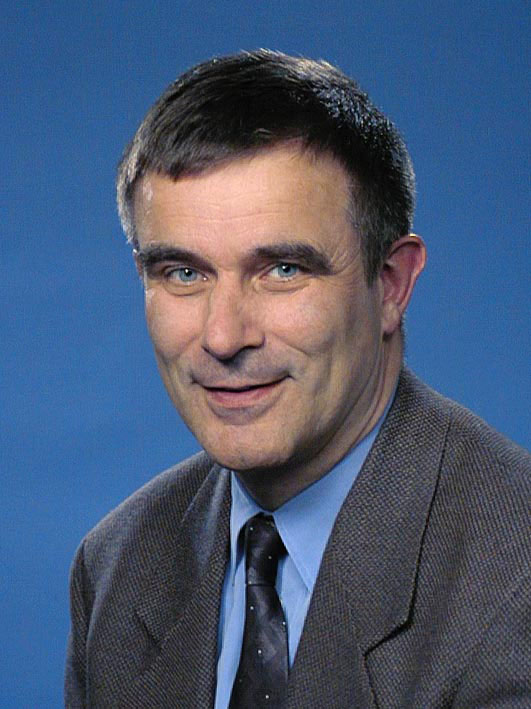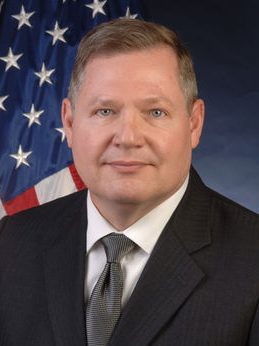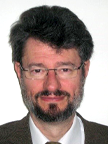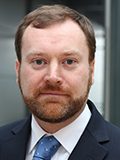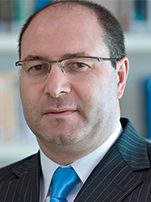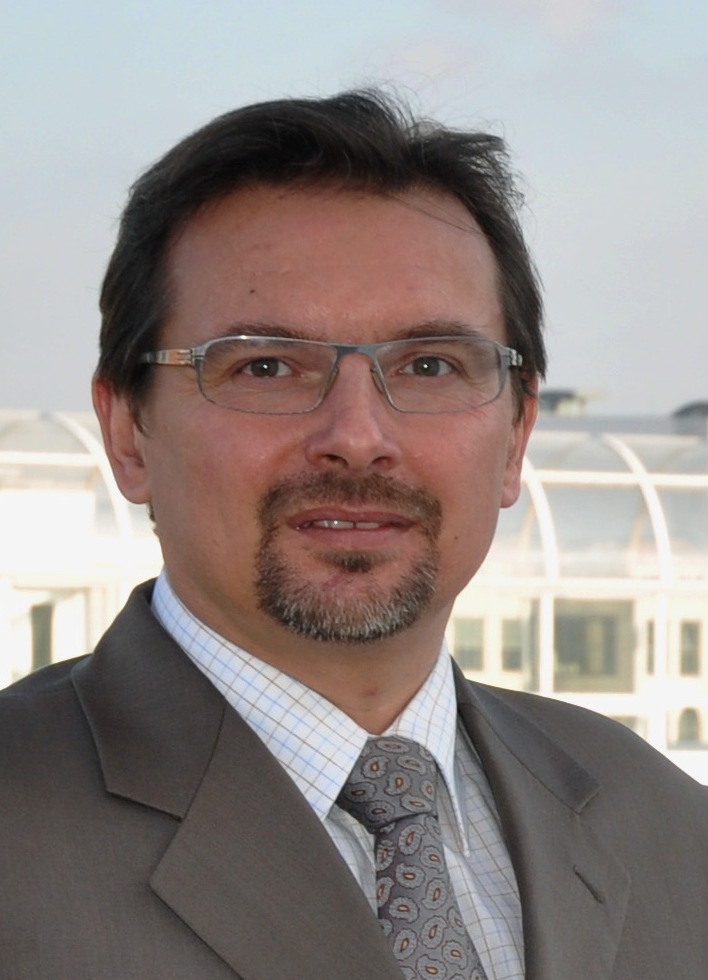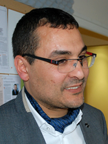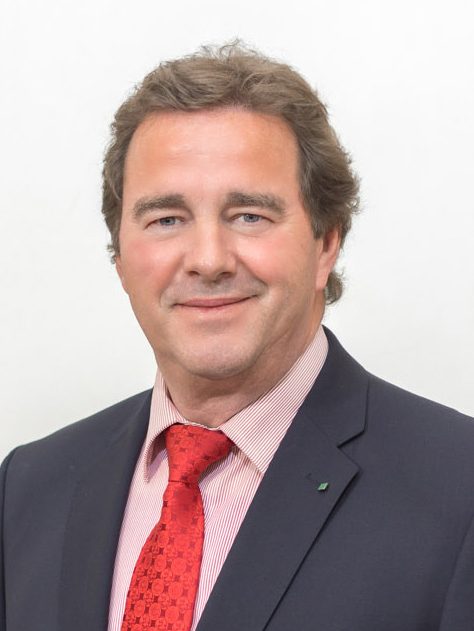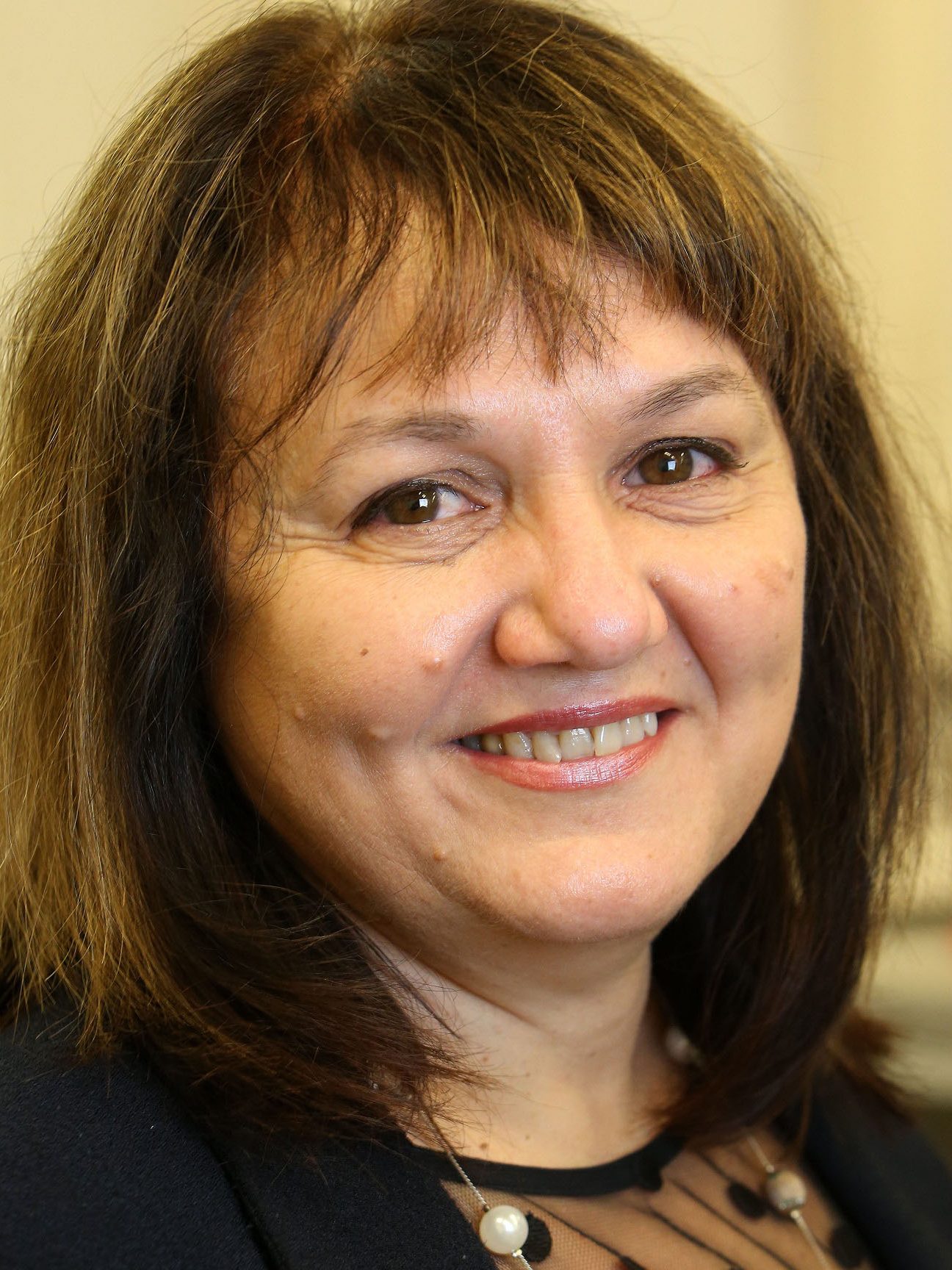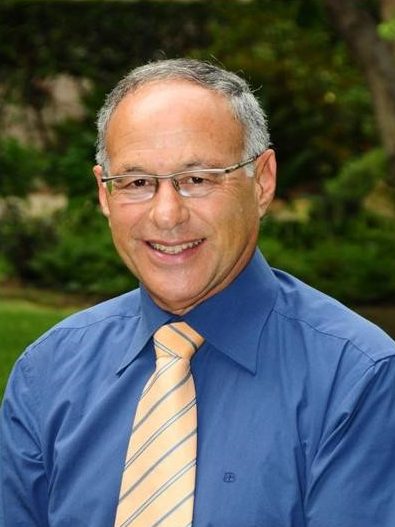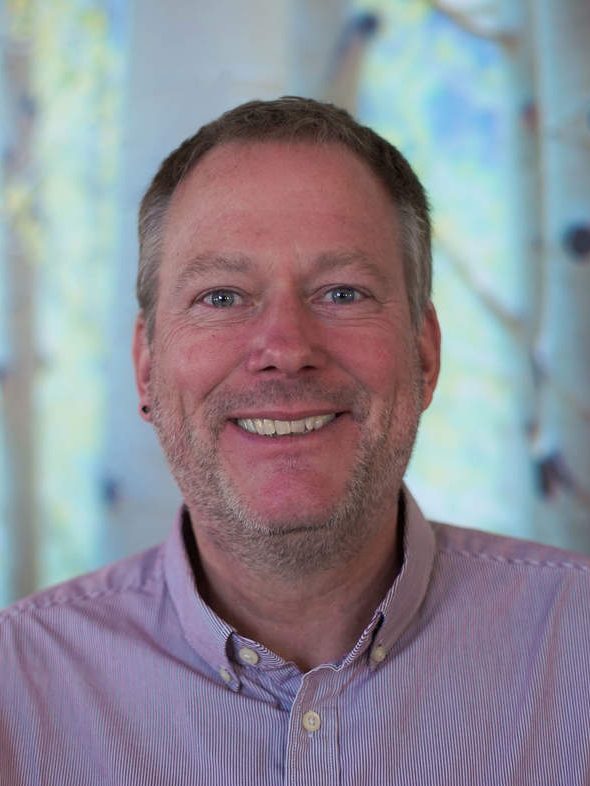Keynotes
Prof. Günther Seliger
Professor and GCSM Founding Chair, Technical University of Berlin, Germany
Presentation Title:
The Challenge of Sustainable Manufacturing
Abstract:
The series of CIRP sponsored annual Global Conferences on Sustainable Manufacturing (GCSM) is coined by the spirit of coping with the challenge of sustainable manufacturing as fundamental means for value creation. Since 2003 thirteen different countries together counting for half of global population, 40 percent of global land, and almost 60 percent of global GDP have hosted these conferences under the local organization of respective local academic institutions with support of industry and civil initiatives. The complex interrelations of manufacturing technological means to cope with challenges of sustainability in economic, environmental and social dimensions have been considered under international perspectives in local national environment. Essential issues dealt with in 15 years of GCSM will be presented in an overview keynote presentation.
Bio:
Günther Seliger made his university education after school and service in the German navy in economics and mechanical engineering at the Technical University of Berlin (TU Berlin). In 1983 he obtained his PhD in industrial engineering with a thesis on “Economical Planning of Automated Production Systems”. From 1975 to 1988 he was research assistant and chief engineer for computer aided manufacturing at Production Technology Center (PTZ) of Institut für Werkzeugmaschinen und Fabrikbetrieb (IWF) TU Berlin and Fraunhofer Institut für Produktionsanlagen und Konstruktionstechnik (IPK) Berlin. Since 1988 to 2016 he was university professor for assembly technology and factory management at IWF TU Berlin. From 1995 to 2006 Prof. Seliger was initiator and head of the Collaborative Research Center (Sonderforschungsbereich) on “Disassembly Factories Regaining Resources in Product and Material Cycles”, from 2012 to 2015 he initiated and led his second Collaborative Research Center on “Sustainable Manufacturing – Shaping Global Value Creation” each supported by the German National Science Foundation (DFG) and comprising annually 20 full-time research assistants, and 40 part-time master students supervised by eight tenured professors. In his academic career he has contributed to more than 500 scientific publications in conferences, specialized journals and books. More than 100 national and international dissertations have been completed under his supervision, over half of them within research projects of his own chair. From 1997 to 1999 he was Vice President of the TU Berlin. Since 1991 he is member of CIRP (International Academy for Production Engineering Science). Since 2009 he is member of acatech German Academy of Engineering. From 1998 to 2016 he was Dean of the international study program of Global Production Engineering (GPE) at TU Berlin. Since 2012 he is foreign Dean of the faculty of engineering at the Turkish-German University in Istanbul. From 1998 to 2003 he directed the program area of production management at the Institute for Management and Technology (IMT) Berlin. He is the founder of the annual CIRP sponsored Global Conference on Sustainable Manufacturing (GCSM) which is held since 2003.
Mike Molnar
Founding Director, Interagency Advanced Manufacturing National Program;
Chief, Advanced Manufacturing Programs, NIST, Gaithersburg, MD, USA
Presentation Title:
Manufacturing USA: Bridging the Gap to a Sustainable Future
Abstract:
A key challenge to restoring U.S. leadership in advanced manufacturing is building bridges across the so-called “missing middle” – the technical and business barriers of scaling-up (and speeding up) an innovative new material, process, or technology for robust production use. The Manufacturing USA program is now in its fourth year with 14 innovation institutes. Each institute is a federally sponsored public-private partnership designed to accelerate U.S. innovation through applied research and advanced workforce skills development. These manufacturing institutes are places where industry and academia partner on industry-relevant challenges. This presentation provides an overview of the program, explains how an institute works, and covers recent highlights along with developments ahead. To illustrate institute operations, the REMADE institute on sustainable manufacturing will be profiled.
REMADE, short for Reducing Embodied Energy and Decreasing Emissions, focuses on materials manufacturing and energy efficiency. In partnership with industry, academia, and national labs, the REMADE Institute enables early-stage applied research and development of technologies that could dramatically reduce the embodied energy and carbon emissions associated with industrial-scale materials production and processing. Efficiencies gained from these technologies have the potential to save billions in energy costs, improve U.S. economic competitiveness through innovative new manufacturing techniques, and offer new training and jobs for American workers.
Bio:
Mike Molnar is the founding director of the interagency Advanced Manufacturing National Program Office, with a mission to foster industry-led partnerships and to form a "whole of government" approach to strengthen competitiveness and innovation in U.S. manufacturing. This interagency team is responsible for Manufacturing USA, the public name for the National Network for Manufacturing Innovation. Manufacturing USA is a bipartisan initiative with fourteen institutes launched. For more information, please see www.ManufacturingUSA.com. Mike also leads the NIST Office of Advanced Manufacturing, which coordinates extramural programs for the National Institute of Standards and Technology, part of the U.S. Department of Commerce.
Dr. Dean L. Bartles
Director, John Olson Advanced Manufacturing Center, University of New Hampshire;
Founding Executive Director, Digital Manufacturing and Design Innovation Institute, Chicago, USA
President, National Tooling and Machining Association, USA
Presentation Title:
Using “Exponential” Technologies to Drive Manufacturing Towards a Sustainable Future
Abstract:
The manufacturing industry as we know it is fundamentally changing, with advanced technologies increasingly underpinning global competitiveness and economic prosperity. Many leading 21st-century manufacturers are converging digital and physical worlds in which sophisticated hardware combined with innovative software, sensors, and massive amounts of data and analytics is expected to produce smarter products, more energy efficient processes, and more closely connected customers, suppliers, and manufacturers. As growing numbers of manufacturing companies look to embark on this transformative journey and navigate through a maze of challenges and opportunities, executives— understandably—have questions: What exponential technologies show the most promise? What is the magnitude of impact that can be expected from adopting and deploying these exponential technologies? How is the manufacturing industry leveraging these technologies in new and distinctive ways to solve current business issues and/or transform our future? What does it really mean to become a Digital Manufacturing Enterprise (DME) of the future, and how might our business model evolve? How can we use these so called “exponential” technologies to drive our organizations towards greener manufacturing processes?
Bio:
Dr. Dean L. Bartles currently serves as the Director of the John Olson Advanced Manufacturing Center at the University of New Hampshire, and was previously the founding Executive Director of the Digital Manufacturing and Design Innovation Institute in Chicago. On August 20, Dr. Bartles became the new President of the National Tooling and Machining Association based in Cleveland. Dr. Bartles worked for General Dynamics Corporation for 30 years setting up and running manufacturing operations in Egypt, Turkey, and the US and prior to that he worked for Fairchild Republic Company. He recently served as the 2016-2017 President of the North American Manufacturing Research Institute, the 2016 President of the Society of Manufacturing Engineers, the founding Chairman of the Smart Manufacturing Leadership Coalition, and the Chairman of the Board of the National Center for Defense Manufacturing and Machining. Dean graduated from Indiana State University earning a Ph. D. in Technology Management with a concentration in Manufacturing Systems.
Prof. Joost R. Duflou
Head, Industrial Management Division, Traffic and Infrastructure, KU Leuven;
Professor, Mechanical Engineering Department, KU Leuven, Belgium
Presentation Title:
Towards Industrial Symbiosis in Discrete Manufacturing: Opportunities in Alternative Recycling Route Identification for Industrial Waste Streams
Abstract:
In terms of resource efficiency strategy in discrete manufacturing, recycling production waste through conventional remelting techniques is often considered the only viable option. However, this approach still implies significant energy consumption and does not allow avoiding substantial material losses. Furthermore, it is no guarantee for material purity preservation. Alternative recycling routes, in which the waste output of one process is considered as potential input resource for other processes, are being studied. In this presentation, a series of examples will be reviewed that demonstrate how specific characteristics of waste streams, typically considered not desirable for conventional recycling purposes, can become assets when appropriate output-input matching can be achieved. The environmental impact that can be avoided by such an industrial symbiosis approach will be illustrated through some representative cases.
Bio:
Joost Duflou holds master degrees in Architectural and Electro-mechanical Engineering and a PhD in Engineering Sciences from KU Leuven, Belgium. After a number of years of industrial experience in different international companies, he has been a faculty member at the Mechanical Engineering Department of KU Leuven since 1997. He became a tenured Full Professor in 2012. His principal research activities are in the field of design support methods and methodologies, with special attention for Ecodesign and Life Cycle Engineering, and Sustainable Manufacturing. As chairholder of the LVD Chair on Sheet Metal Processing, he also leads a research group focusing on sheet metal-oriented manufacturing processes and systems and he supervises the KU Leuven FabLab. He is a CIRP Fellow and has published over 250 international publications. As chair and board member of several spin-off companies and professional associations he contributes to research valorisation and dissemination. More details can be found at:
Prof. Dermot Brabazon
Director, Advanced Processing Technology Research Centre at DCU;
Deputy Director, I-Form Advanced Manufacturing Research Centre, Dublin City University, Ireland
Proposed Presentation Title:
Additive Manufacturing - A Game Changer for Sustainable Manufacturing?
Abstract:
Over the last decade in particular, improvements in Additive Manufacturing (AM) technologies have resulted in increased potential to directly print in one step functional components. In order to achieve this in produced parts, a number of important requirements have to be met such as a high-level dimensional accuracy, the availability of an improved range of functional materials, and a supply chain and cost model which is competitive with traditional manufacturing. In recent years, great strides have been made in these areas which enable a new range of applications to avail of AM technologies. The dimensional, physical and chemical integrity of polymer and metal printed parts have improved greatly allowing a broader range of end applications. There are now over 100 AM equipment suppliers which is mirrored by the increase in the materials supplied for these machines. Production speeds and quality control also continue to improve. The AM process has the ability to produce complex components with integrated functionality requiring less material and fewer production assembly steps. The raw materials for AM can be recycled, particularly for metal AM. The process can also be used to process parts in remote locations, with reduced need for transportation costs. In this talk, an overview of these developments and in particular their implications for sustainable manufacturing will be presented.
Bio:
Prof. Dermot Brabazon received his BEng (Mechanical Engineering) and PhD (Materials Science) from University College Dublin. From 1995 to 2000 he worked with Materials Ireland, a state materials science research centre. From 2000 he was appointed as a lecture at Dublin City University, promoted to Senior Lecturer in 2006, Deputy Head of School in 2007, Associate Dean for Research in 2009, and to Professor in 2014. In recognition of his academic achievements and contributions to development of engineering technologies, he was conferred with the President’s Award for Research in 2009 and Commercialization award in 2015 and 2017. Since 2012, he has been Director of the Advanced Processing Technology Research Centre at DCU and is currently Deputy-Director of I-Form, the national centre focused on development of Advanced Manufacturing technologies. He has published over 250 internationally peer reviewed papers. His research is focused in the areas of materials and processing technologies, including Additive Manufacturing, Near Net Shape Forming, Laser Processing and Separation technologies. These overlapping activities are focused toward the development of advanced processing knowledge to enable improved production capability and quality for achieving broad societal benefit. Details of his research can be found at the following links:
https://www.dcu.ie/apthttps://scholar.google.fr/citations?user=WlPcqhIAAAAJ&hl=fr&oi=ao
Prof. Marwan Khraisheh
Senior Research Director, Hamad Bin Khalifa University, Qatar Foundation, Qatar
Presentation Title:
Towards Sustainable Energy: Advancing Solar PV in Harsh Desert Climates
Abstract:
Climate change and energy security are undoubtedly among the most pressing challenges the world faces today. It is critical to adapt sustainable and energy efficient technologies and practices and rely more on renewable energy. Despite recent advancements in the utilization of solar energy as an efficient and sustainable source of energy, major obstacles facing deployment of large solar farms regions still exist. For example, desert-like climates face major challenges such as excessive heat and the presence of soiling which drastically impact the efficiency of solar PV. The first part of the presentation will identify these challenges and highlight the recent research efforts undertaken by researchers at Hamad bin Khalifa University (HBKU) at Qatar Foundation to find innovative solutions. Additionally, another major challenge facing widespread utilization of solar energy is its unpredictable nature making it difficult to correlate with energy demand profiles for optimum use. The second part of the presentation will focus on a prediction algorithm correlating solar PV energy production with demand profiles using support vector machines technique. The algorithm, capable of one-day ahead forecasting of PV output and load profiles, is validated using one-year data collected from a PV array, a weather station and sensors measuring energy consumption.
Bio:
Dr. Khraisheh is the Senior Research Director at Hamad bin Khalifa University at Qatar Foundation overseeing a number of portfolios spanning research strategy, policy, and administration, innovation, and strategic partnerships. He led a research staff of more than 150 to address energy, water and environment grand challenges. Prior to joining Qatar Foundation, Dr. Khraisheh was the Acting Provost and Founding Dean of Masdar Institute (in partnership with MIT) and a member of the MIT-Masdar Joint Executive Committee. At Masdar Institute, he led the development of eight MS and PhD degrees focused on advanced energy and sustainable technologies and recruited more than 70 faculty members from around the world.
Prior to joining Masdar Institute, Dr. Khraisheh was an Endowed Professor at the Department of Mechanical Engineering and the Director of Undergraduate Studies at the University of Kentucky (USA).
Dr. Khraisheh is a recipient of the US National Science Foundation CAREER Award, the SME Eugene Merchant Outstanding Young Manufacturing Engineer Award, the NAMRI Outstanding Research Paper Award and the Henry Mason Lutes Award for Excellence in Engineering Education.
He is an ASME Fellow, AAAS Fellow and a CIRP Member. He served as the Associate Technical Editor of the ASME Transactions Journal of Engineering Materials and Technology (2009-2018) and serves as the Associate Editor of the new International Energy Transitions Journal published by Springer.
Prof. Holger Kohl
Vice-Director, Fraunhofer Institute for Production Systems and Design Technology IPK;
Director, Division Corporate Management, Fraunhofer Institute for Production Systems and Design Technology IPK;
Professor, Sustainable Corporate Development, Technical University of Berlin, Germany
Presentation Title:
International Case Studies for Innovative Learning Approaches by Learnstruments and MakerSpaces for Fostering Sustainable Manufacturing
Abstract:
The fast and disruptive changes in global value creation networks towards highly digital integrated production environments and the growing challenge of sustainability are setting new demands on engineering education. Meeting the future needs for teaching, learning and in-work training requires the development of new learning conducive technologies, approaches and intercultural soft skills.
To address these challenges, a perspective of problem- and experience-based teaching and learning in industrial engineering as a tool in research and education is given. A morphology for the structure of Learnstruments and exemplary learning-conducive applications are presented. Furthermore, it is shown how MakerSpaces can be used to rapidly develop and manufacture these Learnstruments as well as prototypes for study courses related to sustainable manufacturing and entrepreneurship.
Keywords: Sustainability, Engineering education, Learnstruments, Industry 4.0, MakerSpaces
Bio:
Prof. Dr. Holger Kohl is Vice-Director of Fraunhofer Institute for Production Systems and Design Technology IPK and Director of the Division Corporate Management at Fraunhofer IPK, Berlin as well as Professor for Sustainable Corporate Development at the Technical University of Berlin. He finished his studies in Business Engineering at the Technical University of Berlin and at the Haas School of Business at the University of California, Berkeley, in 1998. In 1999, Prof. Kohl joined the Division Corporate Management at Fraunhofer IPK as a Senior Researcher. Since then he has initiated and conducted several national and international projects on Strategic Planning, Knowledge Management, Intellectual Capital, Benchmarking and Business Process Reengineering and was responsible for their realisation. Beside projects all over Europe, Prof. Kohl managed large-scale projects in Brazil, Indonesia, Vietnam, Malaysia, UAE, Egypt, China, etc. Since 2015, he is the Dean of the international master’s degree program on Global Production Engineering (GPE) at Technische Universität Berlin and Chairman of the GPE examination board. Since 2015, he is a Chairman of the Global Conference on Sustainable Manufacturing (GCSM). His primary research interests are in the area of Sustainable Manufacturing, Strategic Planning and Implementation of Innovation Systems, Intellectual Capital Management, and Benchmarking, in both the public and private sectors, as well as in the industry and service sectors.
Prof. Mohamed El-Mansori
Professor and Director, Materials Processing Labs, Arts et Métiers Paris Tech, France
Presentation Title:
Smart Manufacturing of Natural Fiber Composites
Abstract:
Natural fiber reinforced plastic (NFRP) composites are attractive materials for sustainable manufacturing since natural fibers are renewable, have low production cost, low density, and high in-service performance. These characteristics enhance energy efficiency, minimize negative environmental impacts, and promote a circular economy. To further improve the sustainability of NFRP manufacturing in terms of energy efficiency, especially during the machining step, it is necessary to perform an in-depth energy investigation during the cutting operation that should consider the multiscale structure of natural fibers inside NFRP composites. This talk presents the work of the authors in smart manufacturing of NFRP composite materials, as well as the implications of their approach in gaining a better understanding of the cutting energy contribution of each NFRP component and to the optimization of the energy dissipated during the process.
Bio:
Mohamed EL Mansori is a Professor at the Department of Mechanical, Material Science and Manufacturing Engineering, Arts et Métiers ParisTech (France) where he leads the Mechanics, Surfaces and Material Processing Laboratory (MSMP-EA-7350)/Engineering. He is appointed as TEES Research Professor at Texas A&M University (USA). He is a co-Director of TEES-TAMU-ENSAM joint research cluster. He served as Deputy General Director in Charge of Research & Innovation at the Arts et Métiers ParisTech, France. He also chaired the Mechanical Engineering and Manufacturing Research Group (LMPF-EA4106) at the Châlons-en-Champagne campus. He was a founder and head of project of the creation of the MSMP laboratory, which is a multi-campus laboratory of the same institution including at Aix-en-Provence, Châlons-en-Champagne and Lille. Mohamed EL Mansori received B.Sc degree in Physics from the University of Hassan II (Casablanca, Morocco:1993), and Ph.D in Mechanical Engineering from the Institut National Polytechnique de Lorraine (Nancy, France: 1997). Following a post-doctoral appointment at the Center for Advanced Friction Studies of the Southern Illinois University, USA, he joined, before ParisTech, the research group at the ERMES (Nancy, France) for five years. His current research interests include the interface of thermo-mechanic characteristics of both metallic and composite materials and physics behind their tribological and manufacturing performance, and multiscale advanced manufacturing processes. These activities have led to the formation of a new research team which conceived and developed the concept of multi-scale process signature in conjunction with a new tribo-energetic approach for the fundamental understanding of advanced and sustainable manufacturing processes involving lightweight synthetic and/or natural reinforced composite materials, energy-efficient manufacturing processes, advanced tribological studies and new process development for improved product performance and sustainability, etc. He has published more than 160 papers in JCR referenced international journals and more than 200 international and national conference proceedings.
Prof. Wilfried Sihn
Academic Director, Transnational MBA ‘Automotive Management’, TU Wien;
Managing Director, Fraunhofer Austria Research GmbH;
Head, Industrial and System Engineering Department, TU Wien, Austria
Presentation Title:
Digitized, Optimized, Ecologized? Can Digitization Promote Sustainable Manufacturing?
Abstract:
Digital representations of production systems are a powerful way to achieve optimized operations. This is especially true when not only economic, but also ecological goals are to be pursued, with a sustainable production.
This keynote will present an insight into approaches utilizing a simulation-based optimization of production systems and the potential of such planning methods concerning energy and resource efficiency, plus the chances and challenges against the backdrop of the ongoing energy transition. The effect of temporal aspects – i.e., different planning horizons from short-term to long-term planning, as well as different levels of the synchronization frequency of digital representations with the corresponding real-life systems, will be explored.
Bio:
In September 2004 Univ. Prof. Dr. Ing. DI Prof eh. Dr. h.c. Wilfried Sihn joined the TU Wien as a professor for industrial and system engineering at the Institute of Management Sciences, and has since been head of this Institute twice, according to rotation. In November 2008, he was appointed Managing Director of the newly founded Fraunhofer Austria Research GmbH and manages the Division Production and Logistics Management in Vienna.
He has been active in the field of applied research for more than 30 years now, taking part in more than 300 industrial projects. His areas of expertise include production management, corporate organization, enterprise logistics, factory planning, order management, life-cycle management, maintenance, modelling and simulation, and business process reengineering. His current focus is on implementing Industry 4.0 concepts, such as Smart Maintenance.
Besides being part of advisory and administrative boards, he also holds several positions in various organizations, such as the board member of the International Federation of Production Research (IFPR) as well as the German Chamber of Commerce (DHK) in Vienna, member of the European Academy for Industrial Management (AIM) and Fellow Member of the International Academy for Production Engineering (CIRP).
Prof. Rossi Setchi
Professor and Director, Cyber-Physical Systems Programs, Cardiff University;
Leader, High-Value Manufacturing Research Group, Cardiff University, UK
Presentation Title:
Integrated Decision-Making for Sustainable Design and Manufacturing
Abstract:
This talk highlights the main challenges in industrial sustainability from the point of view of the decision makers and the importance of having computational tools to compare alternatives in terms of cost and environmental implications. The talk presents an eco-design decision-making methodology that integrates life cycle assessment, process modelling and quality function deployment and provides opportunities to consider alternatives at different stages of product design. All product sustainability considerations are conducted within a special eco-design house of quality. This brings together the analysis of factors relating to manufacturing processes, product usage and end-of-life strategy; it insures that product sustainability is central to any design development and that the implications of change are fully identified and justified. The talk will demonstrate the complexity of the decision-making process and the need for knowledge-based and semantic tools to support the decision-making process.
Bio:
Professor Rossi Setchi leads High-Value Manufacturing at the School of Engineering of Cardiff University. She received her Double Honours degree in Mechanical and Electrical Engineering (first class, Summa Cum Laude) from Moscow Technological University in Russia, and her PhD from Cardiff University, UK. Professor Setchi joined the School of Engineering as a Lecturer in 2000; she was promoted to Senior Lecturer in 2007 and Chair in 2011. Professor Setchi has a distinguished track record of research in a range of areas including advanced manufacturing, AI, robotics, and Industry 4.0. She has completed research projects with many companies including Airbus, BAE Systems, Bosch, Continental, Fiat, Hewlett Packard, Panalpina, Renishaw and Sandvik. Professor Setchi is Fellow of three Professional Institutions (IMechE, IET and BCS), and Senior Member of IEEE. She is member of several IFAC/IFIP/IEEE technical committees and editorial boards. Professor Setchi is a Visiting Professor at Nanjing University of Aeronautics and Astronautics, China and recipient of the prestigious Tan Chin Tuan Senior Fellowship in Engineering at Nanyang Technological University, Singapore.
Prof. Rafi Wertheim
Professor, Fraunhofer IWU Chemnitz, Germany
Presentation Title:
The Great Convergence: Biologicalization, Digitalization, Sustainability and Future Manufacturing
Abstract:
Bio-intelligent value adding bears potential for disruptive innovations in manufacturing. As a possible combination of digital and biological transformation, it may significantly change the design and handling of production processes and products. Biological transformation is considered as a new emerging frontier in the evolution of digitalization and the Fourth Industrial Revolution (Industry 4.0). The principle of biologically inspired intelligent manufacturing is proposed to be a driver and factor for sustainable development of new materials, design concepts, processes and equipment as well as production systems. The potential of utilizing biological principles can be considered for innovative lightweight environmentally friendly and energy efficient industrial products, mainly by using, being inspired by or by imitating biological elements, solutions, phenomena, materials, or living creatures. The combination of biological principles with digitalization, new technologies and new processes provides an excellent tool for sustainable and resource efficient production. This keynote paper includes the latest findings of a major Fraunhofer analysis on possible scenarios, fields of action, potentials, and demand of a biological transformation of the manufacturing industry and a groundbreaking review from the international Academy for Production Engineering (CIRP), introducing the principle of biological transformation in engineering. It presents and discusses examples of research and development directions such as additive manufacturing as well as industrial products.
Keywords: Biologicalization; digitalization; resource efficient production
Bio:
Dr. Ing. Rafi Wertheim is Professor for Mechanical Engineering at the IWU. Fraunhofer Institute in Germany since 2009. Since 2015 he is Fraunhofer Senior Advisor in Israel. From 2014 he is teaching Mechanical Engineering at the Braude College, Karmiel, Israel. He has served as Head of Machining Technology Department at Chemnitz University of Technology and Head of Metal Cutting Department at IWU-Fraunhofer. He served also as an adjunct professor of Mechanical Engineering and Industrial Management at the Technion, Israel Institute of Technology. He was ISCAR LTD Manager of engineering from 1975 to 2003, including production, legal proprietary, international conferences, R&D, and more. He is very active in The International Academy for Production Engineering (CIRP). He served as the CIRP President in 2001-2002 and is a prestigious Honorary Fellow of CIRP since 2007. He has been honored by the coveted SME Frederick W. Taylor Research Medal for his significant published research leading to a better understanding of materials, facilities principles and operations and their application to improving the manufacturing process. He has authored 7 books, 7 patents, and over 200 papers in these areas. In addition to academia, Dr. Wertheim is also very active social and political activates in Israel and Germany. He Was Mayor of Qiryat Bialik in Israel from 2003 to 2008 and is a member of town council since 1987. He received his Dr -Ing. In production engineering from RWTH Aachen, Germany in 1975, M.Sc. and B.Sc. in mechanical engineering from The Technion, Israel, in 1970 and 1968, respectively.
John Davies
Vice President and Senior Analyst, GreenBiz, USA
Presentation Title:
From Here to Circularity: A model for Restorative and Regenerative Enterprise
Abstract:
The circular economy involves a fundamental rethinking of products, materials and systems of commerce. Most importantly, it will require new partnerships and alliances among business, government, and civil society. Approached correctly, circular business strategies can unleash an economic revolution that that is both restorative and regenerative. The challenge comes in driving these efforts to scale.
Mr. Davies will present examples of the challenges faced by businesses as they seek to transform current operations to take advantage of new opportunities. This will require innovative approaches to design, materials science, manufacturing, supply chain management, product strategy, logistics, procurement and other business functions. It will also require a new level of collaboration with customers, suppliers, and competitors as new business models and financing strategies evolve to support circular solutions.
Bio:
John Davies is vice president and senior analyst at GreenBiz Group, heading up independent research regarding green strategies and business operations and the sustainability profession. Davies also leads the GreenBiz Executive Network, a member-based, peer-to-peer learning forum for sustainability professionals. The network is made up of senior executives from $1B+ corporations working together to share best practices and lessons learned for implementing sustainable development programs. Davies is an experienced entrepreneur and innovator who has applied his business and management skills to launching start-ups as well as improving the operations of existing businesses. Davies is a frequent keynote speaker at international events, is well-known for his supply chain and sustainability expertise and is the author of numerous articles in business, industry, and educational publications. John received his BA from SUNY at Fredonia and his MA from the University of Delaware.

